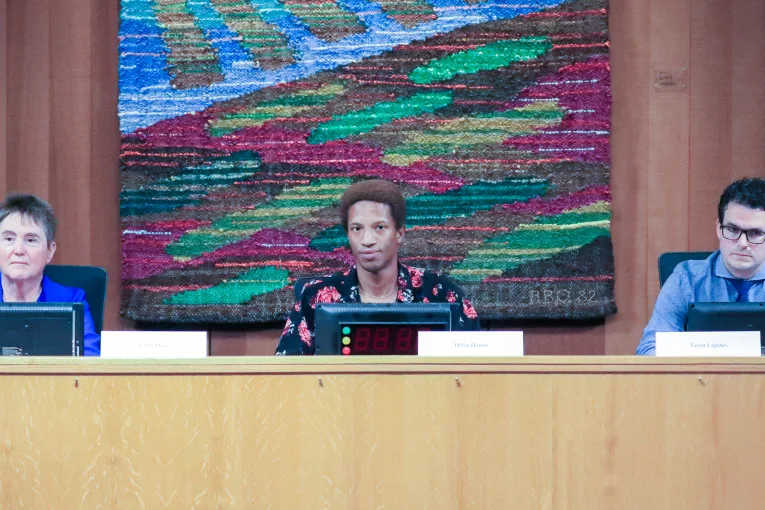
On Thursday, the Davis League of Women Voters (LWV) held a candidate’s forum for the three candidates vying for the open District 2 seat vacated by Will Arnold after serving two terms.
The forum featured: Victor Lagunes, Dillan Horton and Linda Deos and was moderated by Michelle Famula. Each candidate got 90 seconds to respond to five questions – with a possible 30-second follow up.
This article covers questions one and three.
Question 1: How would you assess and improve the financial health of the City of Davis?
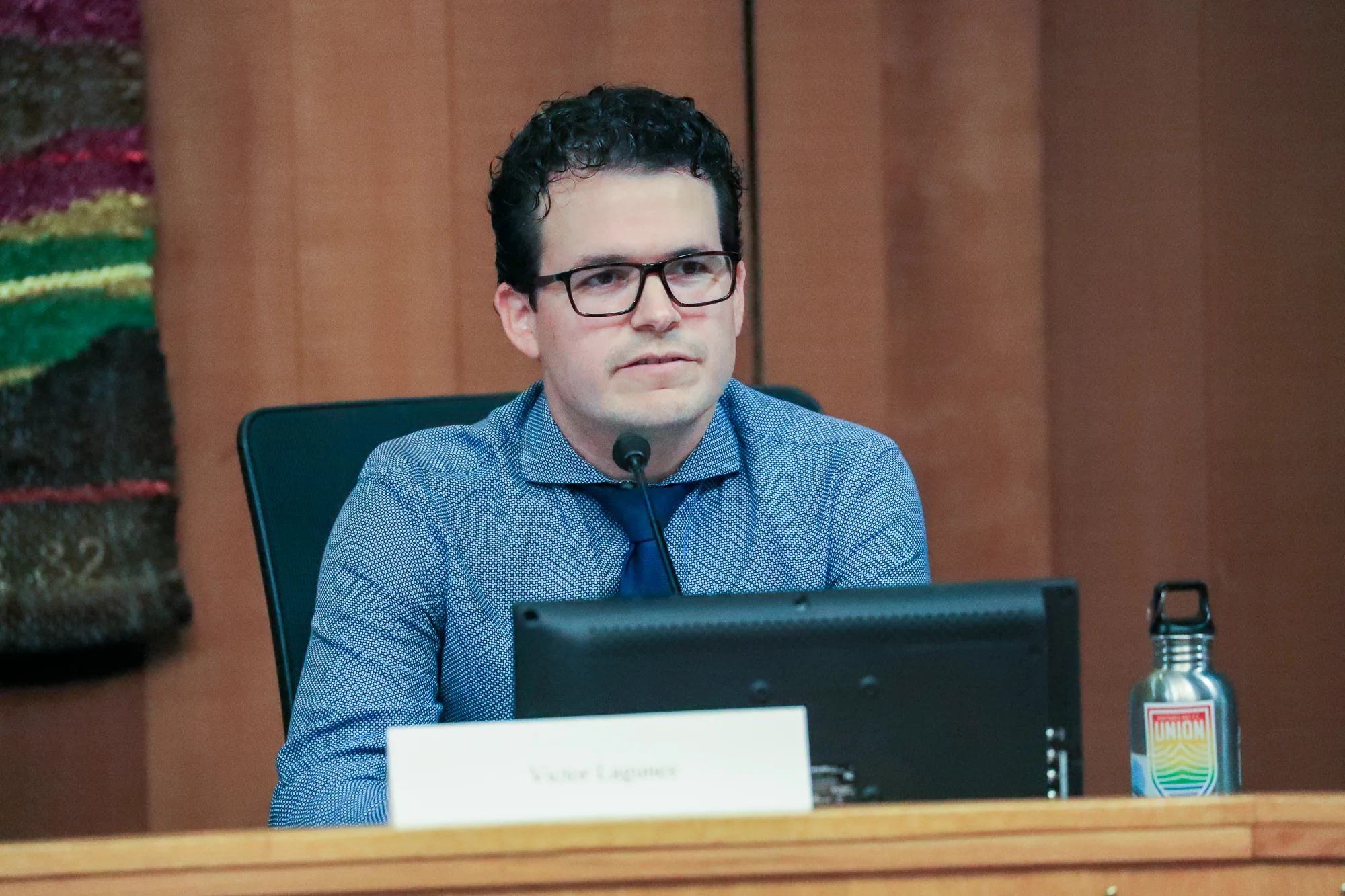
Victor Lagunes
I think that a budget is a statement of priorities and I think that when you view it that way, then our priority should be the service to the community and the residents of Davis. And so I believe that you asked me to assess it and I would say needs improvement is a great way to put that. I believe that this is a critical time for us to really consider where we are at economically and think about potentially being able to grow our economic development, not just through a ballot measure that’s on right now for a sales tax measure queue, but through other avenues as well. And so the reason I believe this to be so important, and I believe I mentioned it in my opening campaign or opening comment if not I was remiss, is that I think that the small businesses of our community are essential, not just economically, but also as an aspect of community so that we have a familiarity with people and not products.
And my history is in education, but my family are small business owners, and so this is something that I’m uniquely concerned with and I think that when we talk about our economic development, we talk about our businesses and the need for a greater tax base. And so I think that it’s important that our city has currently gone through and hired an economic development director in order to have outreach and try and find more incubators to start businesses of the well-trained and educated people coming out of UC Davis. And also that our partnerships with our local nonprofits continue to thrive so that we can continue to have their services.
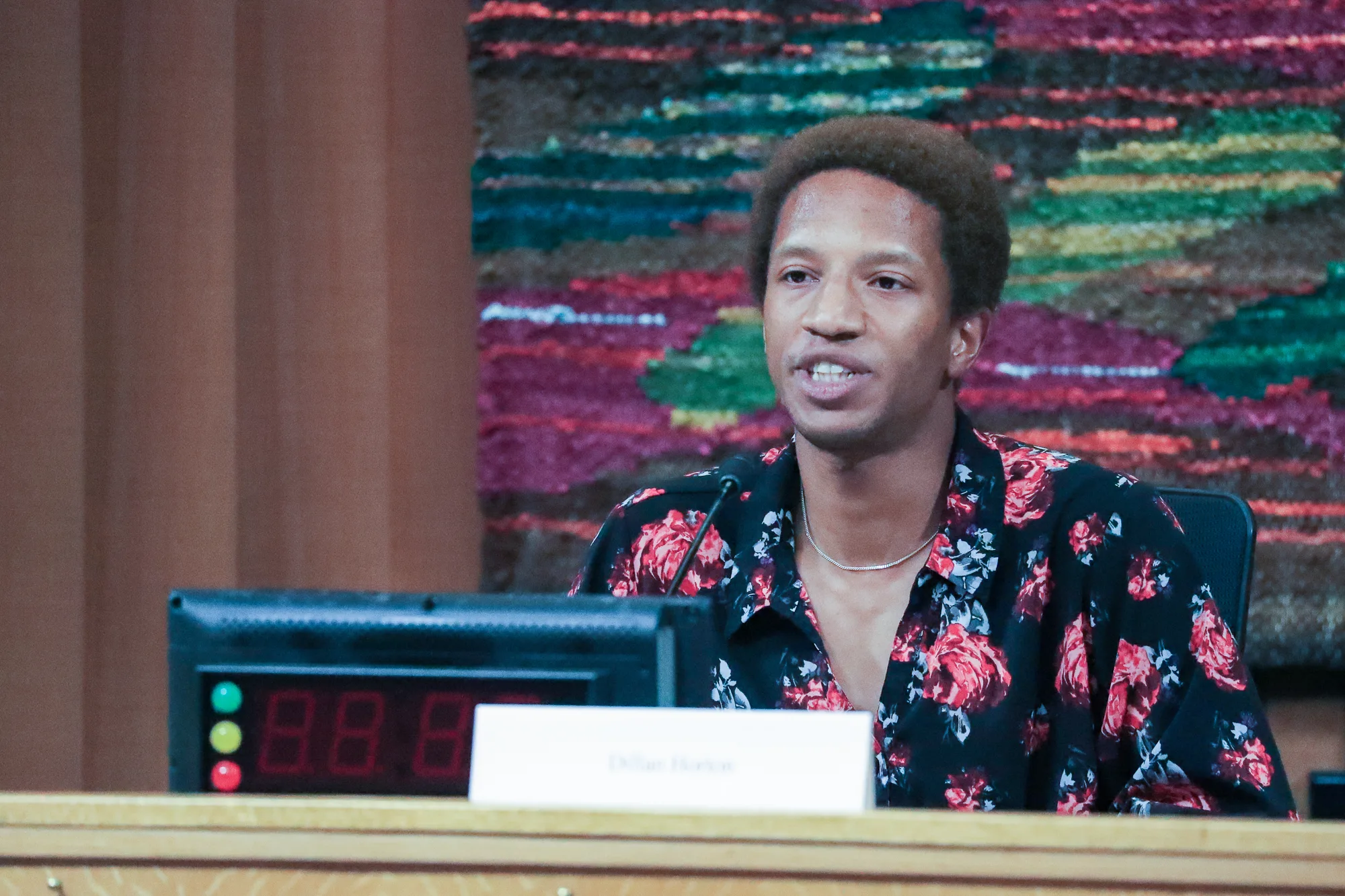
Dillan Horton
In terms of the fiscal outlook of the city and the fiscal health of the city, I think we are in a concerning situation in terms of our fiscal health and our fiscal house, and that’s something that we really need to tackle head on as a challenge because it’s only through a robust and well-managed general fund that we can fund all of the services that people in Davis rely on. As I’ve talked to voters who are trying to make up their mind about how to vote on measure Q later this year, I’ve heard a lot of folks who think that the city has challenges managing the money that we already give them, and I think that if we are looking to create an environment where more people are willing to entrust putting more tax revenue into the city’s hands, we have to rebuild the trust that I think this has been broken over a number of years. We need to better outreach to affected residents before we formulate new projects or policies. So we don’t do one project 1, 2, 3 times over like the mace mess. We need to better utilize local expertise instead of paying several thousand dollars to an out of town consultant for almost everything we do as the city, if we do these things we’ll rebuild broken trust with Davis voters and at the same time be better stewards of our city finances.
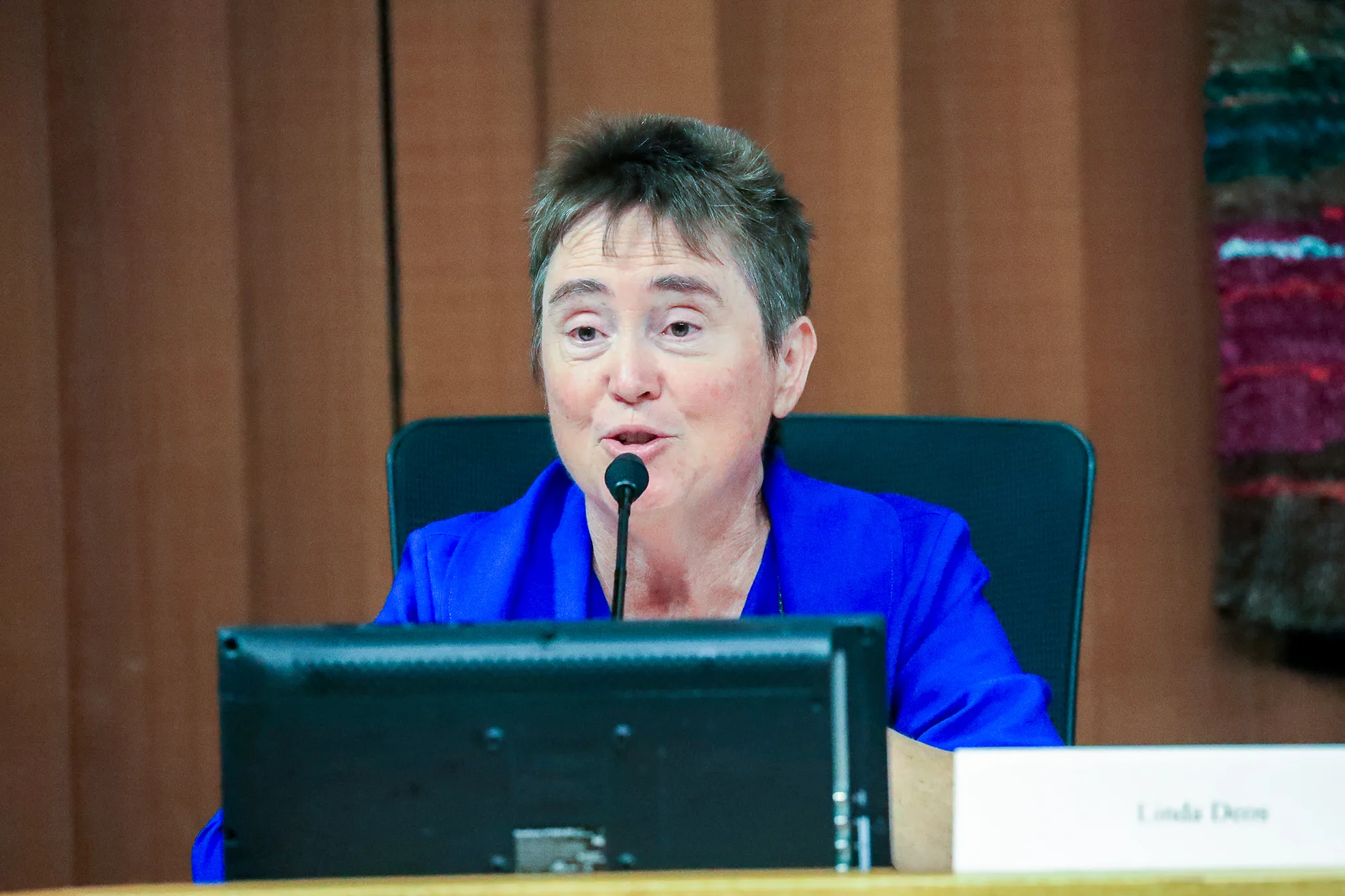
Linda Deos
There we go. We have the same constraints that all cities in California have because of Prop 13. I mean, we all are struggling to find ways to raise money to help out with different programs within the city. I mean, prop 13 kind of puts a kibosh on many things that the city would like to be able to do. So that means we need to be frugal with their money. We need to make sure we are spending it wisely and looking for grants as being a great example. We just got in a 24 million grant for a road project for the cool surfaces for our roads, and yes, we definitely need to be promoting our economic development. I think that’s very important and we have a wonderful new employee on board for doing that. And that’s Katie Yancy, and she’s already doing outreach to the business community and seeing exactly what do they want, what do they need, how can we help do that to help them come forward?
Measure Q is important, but it’s a bridge. It’s a bridge for what we need going forward. I mean, it’s going to be $11 million. That’s a good percentage of our general budget, of our general fund. So we build trust. How do you build trust? You put people there that you trust that are going to do the job right? And who’s somebody who can do that? How about a bankruptcy attorney, somebody who’s been looking at financial documents for 25 years, somebody who’s been looking at budgets, going in and looking at businesses and people and saying, here’s what you need to do. That’s what I’m going to bring to the city.
Dillan Horton
So I wanted to talk a little bit about my experience in this area earlier. I think as a 19-year-old, I was a member of a bond oversight committee for one of California’s largest bond funds for at least community college facilities building. And so my job was every month to be at those meetings, making sure that the promises that they made on the campaign trail in terms of how they were going to spend their money were actually what they were doing in terms of spending their money. So taking that principle leadership of valued censored, excuse me, leadership to our fiscal management is something that I think I’m quite prepared for. Thank you.
Linda Deos
I believe up here, I’m the only small business owner that’s on the dais here. I own my law firm. I have to meet payroll, I have to meet overhead so I can understand what’s going on with our business leaders here in town and what’s happening and the constraints that they’re under and the importance of bringing in the dollars.
Victor Lagunes
I think that what needs to be said is that through my role as DTA president, we advocate for many things for our schools, and that requires analysis and oversight of a budget of $120 million, which is roughly 40% larger than the general fund of the city. And in order to do that, or we do that in order to talk about salary and benefits for employees and services to our students. And I want to bring that same sort of analysis and oversight that I’ve had as DTA president to our city council and our budget. Thank you.
Question 3: How should the city finance and implement the Downtown Plan, including the renovation of G street?
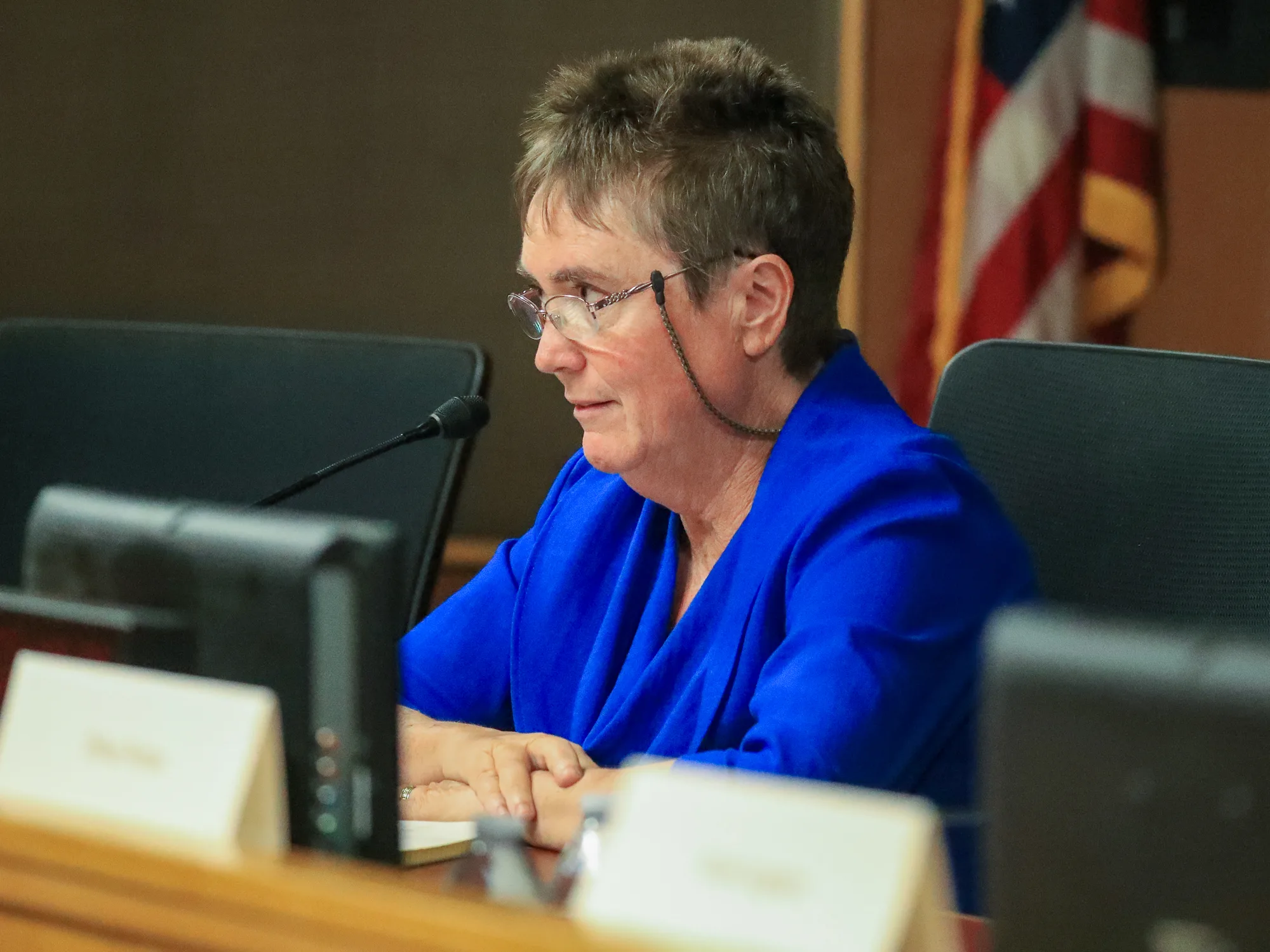
Linda Deos
Well, sales tax dollars, we go a long ways and if we pass Measure Q, then we’re going to have more money coming in for that purpose. Exactly. Gosh, we’ve got user fees, we’ve got other fees that can be used downtown. We’ve got licensing fees. We just discussed at the planning commission the other night, folks who want to have outdoor dining and that would include on G Street. And we were discussing, well, how do we streamline that? How do we help the folks who want to have that type of dining experience and help the business owners know that there’s not 3, 4, 5 forms to fill out? There’s only one form they need to fill out describing what it is exactly that they want to do. So I think it streamlining our processes will make a big difference, and that’s already covered with our staff time. In fact, we’re not even charging businesses for that initial look at what they want to do downtown. Along with that, if they do want to do a larger development, say what’s happened at Burgers and Brew, they’re going to be putting a deposit down to pay for the staff. Looking that over, figuring out what needs to be done and going forward from there.
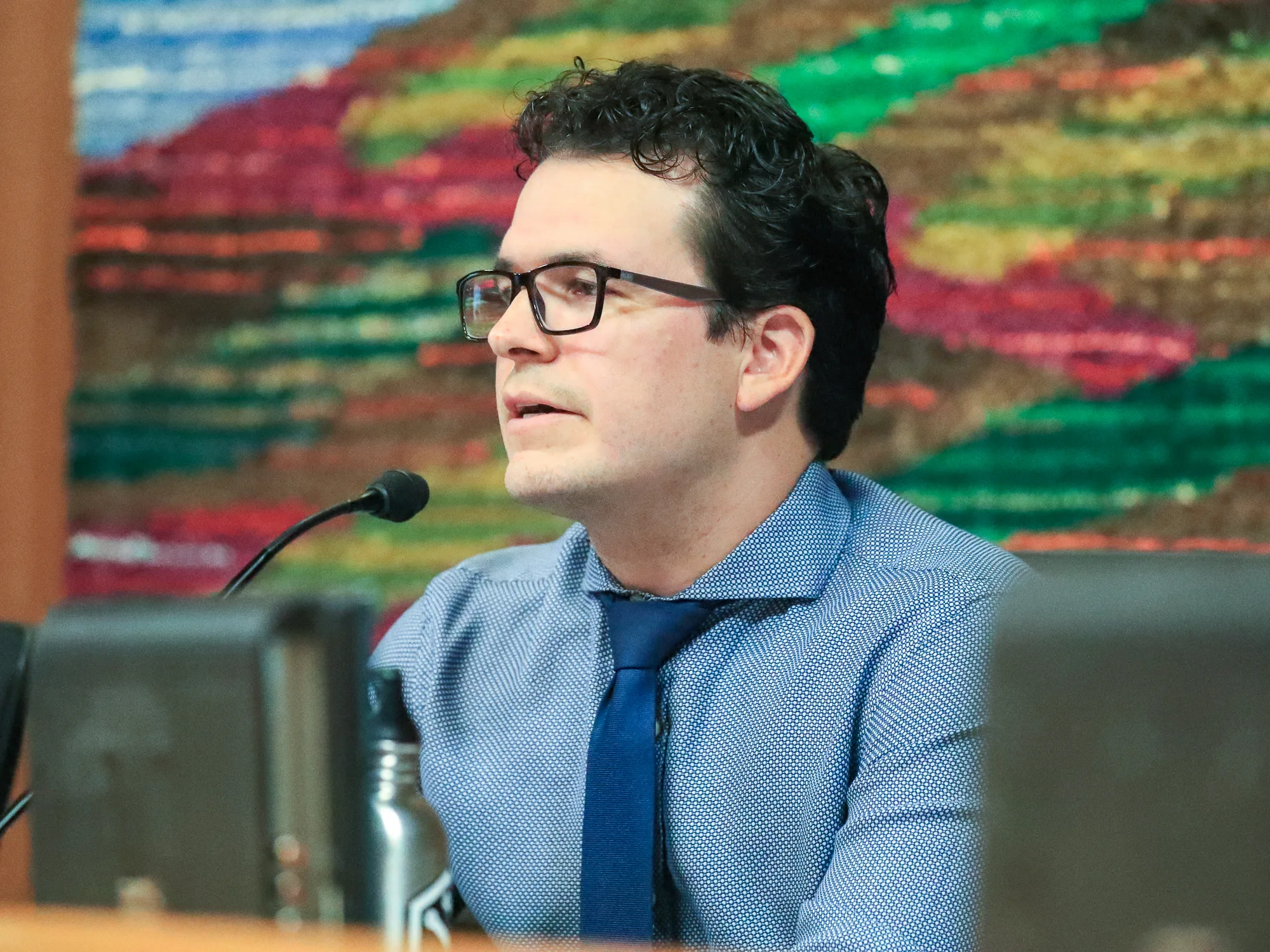
Victor Lagunes
I think that one of the things that’s key is being able to take the input of the businesses, and I know that that was an area of concern and possibly you could say an area of growth for the city when it comes to G Street activation and engaging with the business community on what their wants and needs are in order to keep the doors open and be able to attract people. And so when I consider the question in particular for the renovation of G Street, I think first about the outreach in order to get that feedback and then the funding sources, I think that considering the number of fees that go into the various forms that are required in terms of permits for businesses and the time that they take for them to be able to open those doors, that can be a really a significant challenge for small businesses.
And so while those fees are there for us to be able to fund those things, they can actually hamper small businesses longevity and sustainability in the initial stages. I think that that may be one way, but I really think that the investment in the passage of Measure Q is going to be a piece of that in order to have the funds to be able to do that. As well as if you take a look at what other sorts of grants we might be able to apply for that could be applicable to the downtown zone in particular, that could be used not just in G Street activation, but also for growing our canopy downtown, which has had its own challenges and making it more inviting as well as so much of the deferred maintenance that’s necessary for our roads.
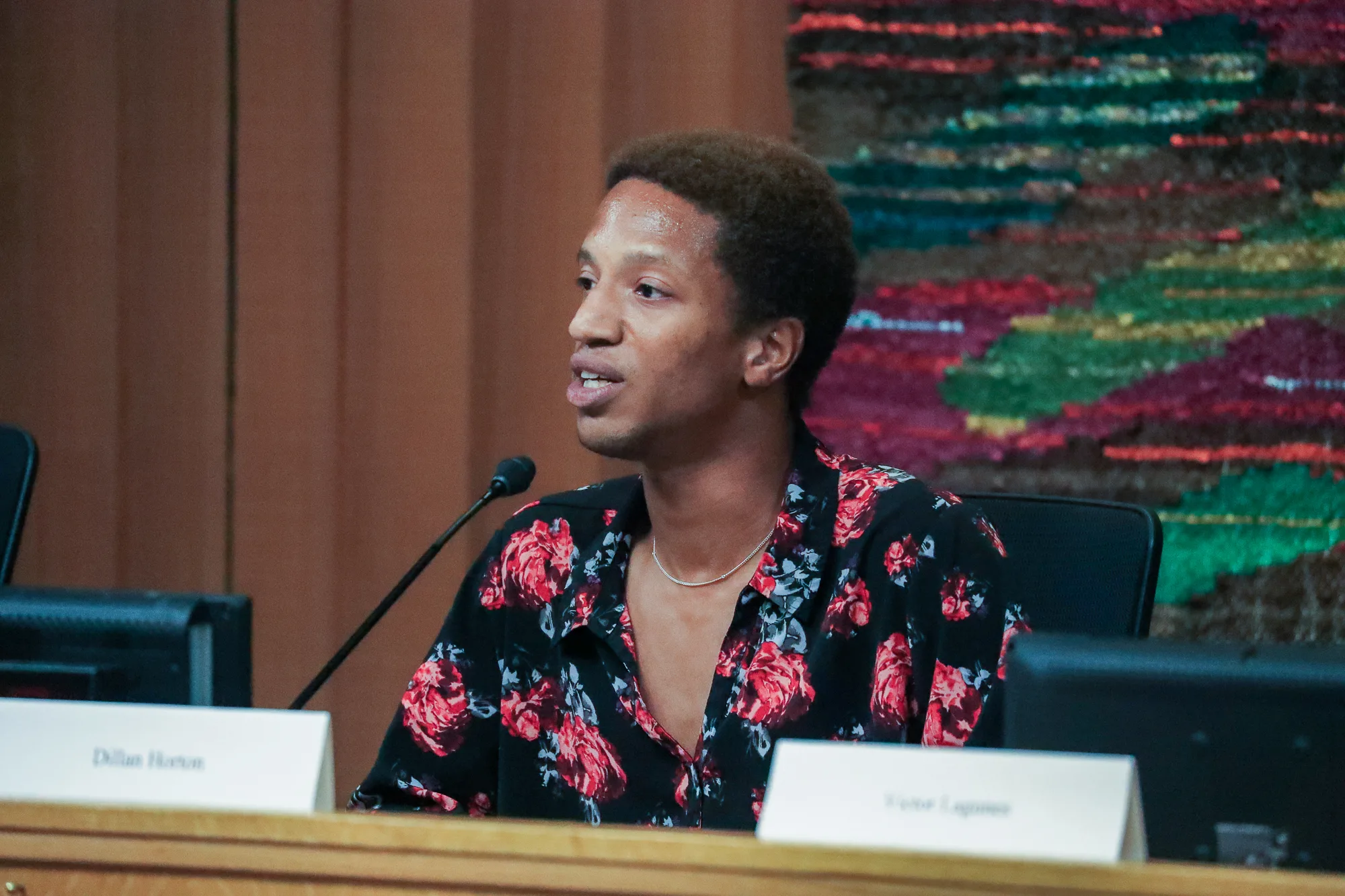
Dillan Horton
This is, I think, a part of the long-term planning or financial management challenges that I was talking about with regard to our city finances a few moments ago. It’s a lot more difficult for the city to manage funding and facilitating a project that is going to come up in the middle of the fiscal budgeting cycle and is not a part of, again, the city’s long-term financial planning, particularly when we’re talking about really expensive items in terms of infrastructure and how we are shaping and designing our neighborhoods and communities, it’s really important, again, that if we’re going to get our fiscal house in order as a community, we make sure that we are maybe being willing to accept some delayed gratification in terms of having some of these projects come a little bit further down the pike when we can manage financing them a little bit more appropriately. Then in terms of beyond just sort of our general revenue funds, I think it’s important that we work with nothing in Davis works without a public private partnership, and so I think working with our partners in the Chamber of Commerce and the Davis Downtown Business Association, I think we’ll be able to figure out how to finance some of those things along with working with our intergovernmental local government partners, like say Cog, who helps us power through financially a whole bunch of things in the community that are really important for Davis residents. Thank you.
